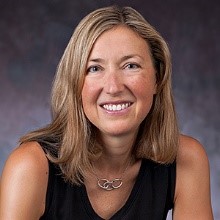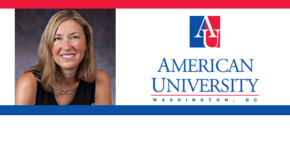 Everyone has had a hard time during the pandemic, but one group in particular has suffered more.
Everyone has had a hard time during the pandemic, but one group in particular has suffered more.
Lynn Addington, professor of justice, law and criminology at American University, discusses how to make the next pandemic easier.
Lynn A. Addington, JD, PhD, is a professor in the Department of Justice, Law and Criminology at American University in Washington, D.C. Her research focuses on fatal and non-fatal violent victimization (with an emphasis on understudied victims) and post-victimization responses. Her work also considers the ways to better connect research with practice and policy. In 2016, she received AU’s top award for faculty research. Her publications have appeared in a range of outlets including the Journal of Quantitative Criminology, Justice Quarterly, and Trauma, Violence and Abuse.
Pandemic Planning with Older Adults in Mind
Frantically searching for face masks and hand sanitizer; nervously sheltering in our homes; scrambling for vaccination appointments — we all felt vulnerable during the COVID-19 pandemic. These feelings were amplified for the oldest among us.
These challenging times have highlighted our need to be better prepared for the inevitable next pandemic and to specifically include older adults. Our planning must include the expertise of local community groups and their established relationships with older adults. One example of these groups is villages — non-profit, grassroots organizations across the US that support neighbors who want to age in place.
My recent research highlights two reasons why villages are essential to our planning for future public health emergencies. First, villages know their members and can assess the needs of our older neighbors. Second, they can deploy existing and trusted volunteer networks to implement vital services in times of crisis.
Before the pandemic, villages sponsored social activities and coordinated volunteers to provide transportation, run errands, and perform home maintenance chores. During the pandemic, many villages found ways to continue and expand their work. My study of Washington, DC-area villages shows they quickly added a range of pandemic-specific services for thousands of older adults. These included sharing public health updates and vaccine information, scheduling online vaccination appointments, distributing personal protective equipment, and combating social isolation by offering Zoom classes and regular phone check-ins to individuals who were not able to leave their homes. Villages also continued to run essential errands and shopping.
While we don’t know if we are at the end of the pandemic, we do know that future public-health emergencies will arise. Villages around the country can provide critical insights and incorporate the needs of older adults as we plan for these emergencies.

Comments
One response to “Lynn Addington, American University – Pandemic Planning with Older Adults in Mind”
I was interested in Dr. Addington’s academic minute on Villages and its work during the Covid pandemic for two reasons. First, I’m afraid that too often we forget to learn from the past and pay unnecessary costs in the future. Dr. Addington’s work can help correct that problem. Second, at eighty-three, I would like to connect with Villages for friends and perhaps myself.
There are a number of senior organizations with names utilizing the word “villages.” I’d like to have more information about the particular organization–website or phone number, if possible.